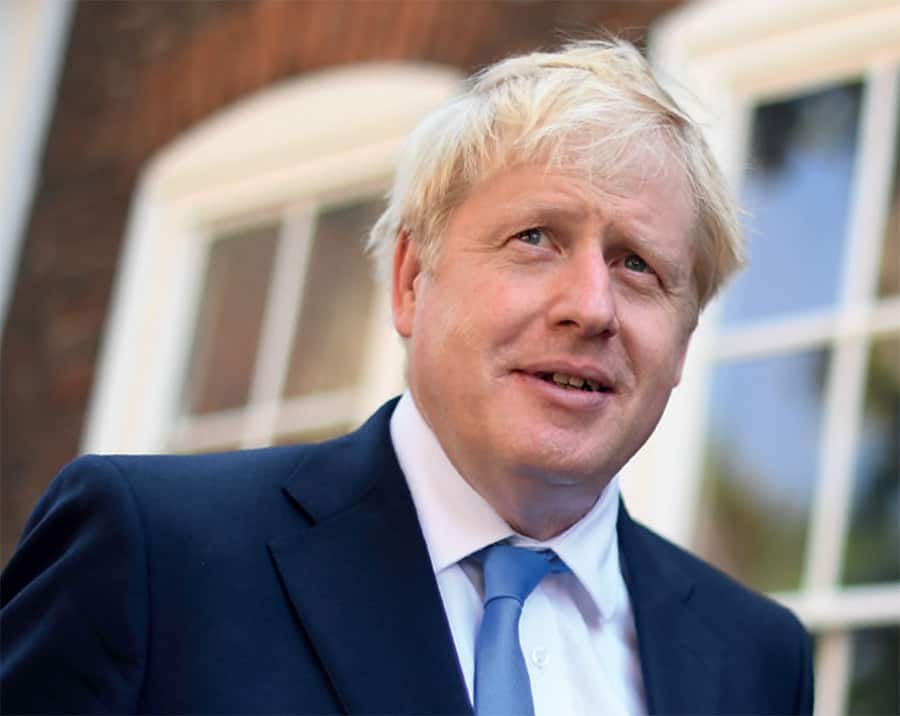Leonard Cheshire responds to Government plans to spend £36bn on health and social care reform

Disability charity Leonard Cheshire has stated that the UK Government’s investment plan, announced yesterday, to tackle the Covid backlogs, reform adult social care, and bring the health and social care system closer together is a “step forward”.
The Prime Minister Boris Johnson has unveiled his plan to invest £36 billion into the health and care system over the next three years, to ensure it has the long term resource it needs.
From April 2022, the government has stated that it will introduce a new, UK-wide 1.25 per cent Health and Social Care Levy, ringfenced for health and social care. This will be based on National Insurance contributions (NICs) and from 2023 will be legislatively separate.
To ensure everyone contributes fairly, all working adults, including those over the state pension age, will pay the levy and the rates of dividend tax will also increase by 1.25% to help fund this package.
Every individual will contribute according to their means. Those who earn more pay more, with the highest earning 14 per cent of people paying around half the revenues.
Employers, who benefit from a healthy workforce and a tax-payer funded health service, will be asked to contribute so the costs are more widely shared.
This will raise around £12 billion in extra funding per year, to be invested in frontline health and social care across the UK over the next three years.
Ruth Owen OBE, CEO of Leonard Cheshire, welcomed the announcement although warned that more needs to be done. She said: “Not having quality social care, tailored to need, denies disabled people the opportunity to earn a living, learn or socialise. These are fundamental rights.
“Additional funds are desperately required but the changes necessary are wider than that. Deep rooted reform of social care is necessary so individual needs are better met, and in more innovative ways. We also need to work on making social care more attractive as a career to help tackle growing recruitment issues.
“There’s no denying the pressures right now. An extra £12bn was estimated to be needed for social care in England alone this year. So although this is a step in the right direction, additional money is urgently needed for the here and now.”
According to the Government, the new funding is expected to fund an extra nine million checks, scans, and operations. The NHS long term plan committed to increasing activity year on year. In recognition of pressures from Covid, this will now increase to 110% of the planned activity levels by 2023/24.
Following the announcement, Health and Social Care Secretary, Sajid Javid commented: “This additional funding is a critical investment in our country’s future – it will give the NHS the extra capacity it needs to get back on its feet and is a vital first step in the reform of our broken care system.”
The Prime Minister also pledged to end the cruel lottery around social care costs.
Currently, around one in seven must pay over £100,000 for care, with bills falling indiscriminately on some of the sickest and most vulnerable.
Yesterday’s announcement stated that no one in England will now have to pay more than £86,000 in care costs over the course of their lifetime regardless of where they live, how old they are, what their condition is, or how much they happen to earn.
At the same time, the government has stated that it will cove all care costs for anyone with assets under £20,000.
Anyone with assets between £20,000 and £100,000 will be expected to contribute to the cost of their care but will also receive state support, which will be means-tested.
The new £100,000 limit is over four times higher than the current limit of £23,250, meaning many more people will be eligible for support than under the current system.
The overall system will be made fairer, the Government states, to ensure those who fund their own care do not pay more than state-funded individuals for the equivalent standard of care.
The social care workforce, it was announced, will also receive new training and qualification opportunities, so they have the opportunity to progress and improve, while providing an even better standard of care.
While Scotland, Wales and Northern Ireland having their own systems, the Prime Minister acknowledged that they will need to work together to tackle treatment backlogs and improve care for our elderly.
The government stated that it will set out a detailed plan later in the autumn to enable Local Authorities and other providers to invest in technology, innovative methods of care and in their workforce.
Last October, the Health and Social Care Committee published a report exploring the reforms needed to the system of funding social care and the level of extra funding required from government in order to relieve current pressures on the NHS and on people who need social care. The inquiry led to MPs calling for a £7 billion annual increase in social care funding as a starting point for reform.
https://thiis.co.uk/leonard-cheshire-responds-to-government-plans-to-spend-36bn-on-health-and-social-care-reform/https://thiis.co.uk/wp-content/uploads/2019/12/Boris-Johnson-PM-Conservatives.jpghttps://thiis.co.uk/wp-content/uploads/2019/12/Boris-Johnson-PM-Conservatives-150x150.jpgInvestments & FundingNewsroomNHSSector NewsThird Sectorbacklog,Boris Johnson,covid,elderly,funding,health,National Insurance,NHS,social care,taxDisability charity Leonard Cheshire has stated that the UK Government's investment plan, announced yesterday, to tackle the Covid backlogs, reform adult social care, and bring the health and social care system closer together is a 'step forward'. The Prime Minister Boris Johnson has unveiled his plan to invest £36 billion...Liane McIvorLiane McIvorliane@thiis.co.ukEditorTHIIS Magazine

